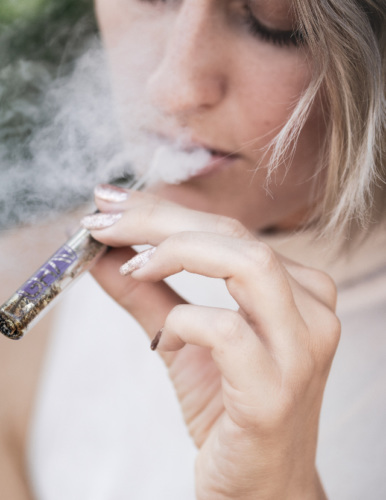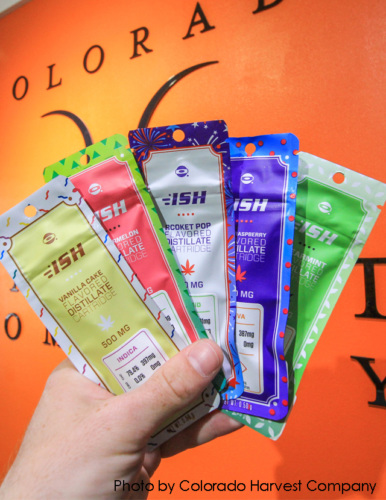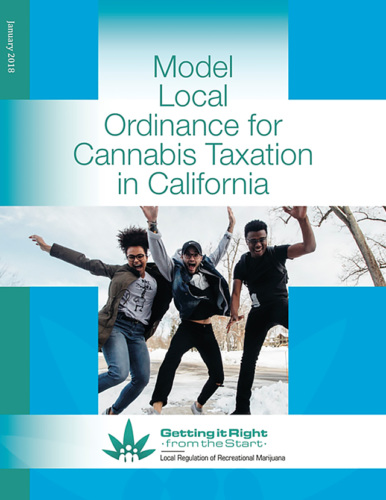
Getting it Right from the Start: Advancing Public Health & Equity in Cannabis Regulation

Getting it Right from the Start, a program of PHI’s Prevention Policy Group, works collaboratively to develop and test models for optimal cannabis policy (retail practices, marketing and taxation), based on the best available scientific evidence, with the goal of reducing harms, youth use and problem use and promoting social justice and equity.
-
Focus Areas
Alcohol, Tobacco, Drugs & Mental Health, Chronic Disease Prevention, Healthy Communities -
Issues
Cannabis -
Expertise
Coalition & Network Building, Evaluation, Health Education & Promotion, Outreach & Dissemination, Public Policy Advocacy, Public Policy Development, Research – Quantitative, Research – Survey, Technical Assistance
Our Impact

- 539 California cities and counties, every jurisdiction in the state, assessed on their local cannabis regulations
- 100+ jurisdictions using at least one best practice developed by Getting it Right From the Start
- 4 innovative bans on flavored cannabis, vapes or "cannpops"
Projects
Active Projects
- Modes of cannabis administration and polysubstance use among women before and during pregnancy
-
The major goals of this project are to examine the prevalence and socio-demographic and policy correlates of prenatal use of different modes of cannabis, and test how modes relate to the risk of daily use, cannabis use disorder, substance use disorders, psychiatric and medical conditions, likelihood of quitting pre or during pregnancy, and utilizing substance use treatment.
- Assessing the impact of cannabis legalization on adolescent cannabis use
-
This project addresses the pressing public health questions of whether and how California state cannabis laws and local regulatory schemes impact the risk of adolescent cannabis use and cannabis-related health conditions. It triangulates local policy data with cannabis use and related health data from adolescents seen in the Kaiser Permanente Northern California health care system.
- Assessing barriers to community engagement in applying tobacco control lessons to cannabis policy
-
The major goals of this project are to clarify knowledge, attitudes, and practices towards and perceived barriers and facilitators of community engagement by entities traditionally engaged in tobacco control and/or substance use policy to incorporate lessons from tobacco control into cannabis policy and prevent undermining of tobacco control by cannabis policy.
Completed Projects
- Local cannabis regulation: What have we learned from tobacco?
-
This is a pilot study of local law on cannabis in California’s 58 counties and 482 cities in 2018-2019. It examines how cannabis is regulated in areas including: smoke-free air, allowable density of retailers, equity for low income residents, product types and potency, flavors, marketing, warnings, health claims, discounting, taxation design, and use of tax revenue. Results help inform policymakers and engage communities to protect health.
- Maternal marijuana use during pregnancy
-
This project examined the effects of prenatal exposure to cannabis use on maternal, fetal, and neonatal outcomes, and the relationship between changes in prenatal cannabis use and recreational cannabis regulatory practices in California.
- Exploring cannabis policies and practices that influence adolescent use: evolution of local cannabis law, products, sales and marketing
-
This study clarified how cannabis policy may influence adolescent use. First, it used our unique database of local cannabis laws and the California Healthy Kids Survey from 2015 - 2022 to examine how variations in local cannabis laws are associated with adolescent cannabis use. Second, it studied how cannabis market sales have evolved since legalization. Finally, it examined to what extent current law effectively precludes underage access to websites that directly market cannabis.
- The impact of cannabis marketing on California's youth: Neuro-behavioral studies for informing policy
-
This project defined key elements of cannabis marketing content that have particular appeal to minors. We combined both behavioral and brain measurements, using a non-invasive brain imaging technique called functional MRI (fMRI), to obtain and compare responses to marketing content in youth and adults.
- Policy and advocacy to promote public health response to cannabis legalization
-
This project conducted legal, quantitative and qualitative research to identify best practices for cannabis policy for protecting public health, developed model local ordinances incorporating these policies for jurisdictions in California legalizing cannabis, and advocated for more cautious regulatory approaches at local, state, and international levels that can better protect youth, public health and advance social equity.
Work With Us
You change the world. We do the rest. Explore fiscal sponsorship at PHI.
Support Us
Together, we can accelerate our response to public health’s most critical issues.
Find Employment
Begin your career at the Public Health Institute.









